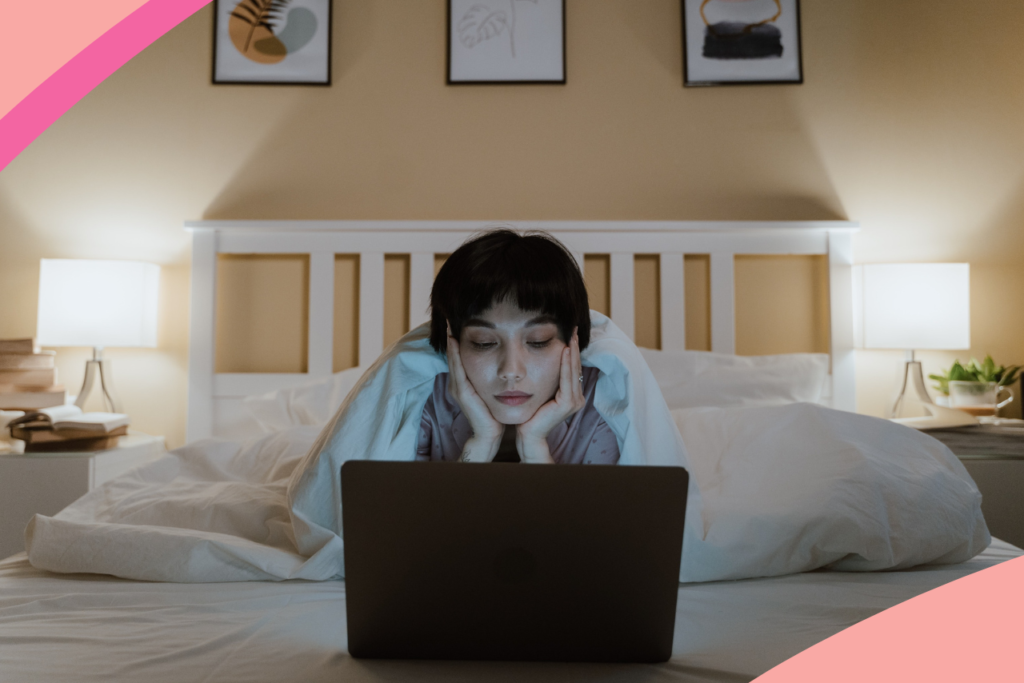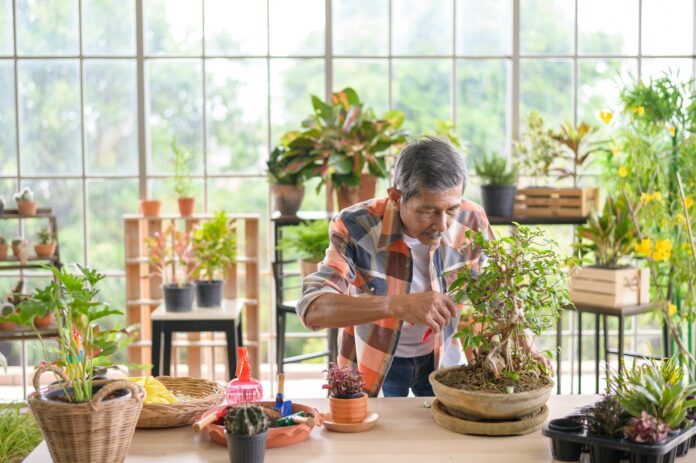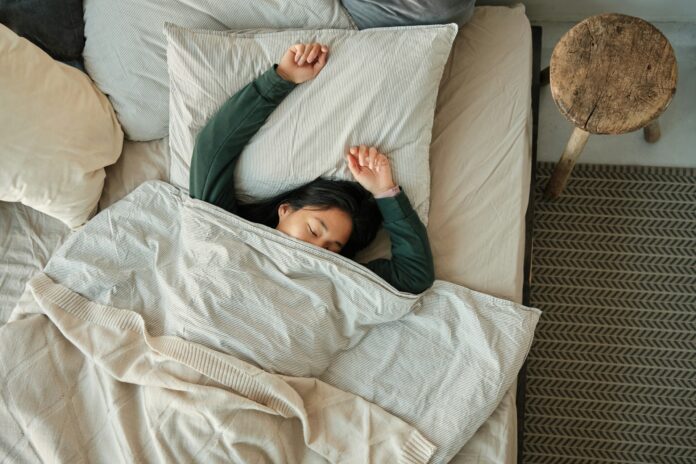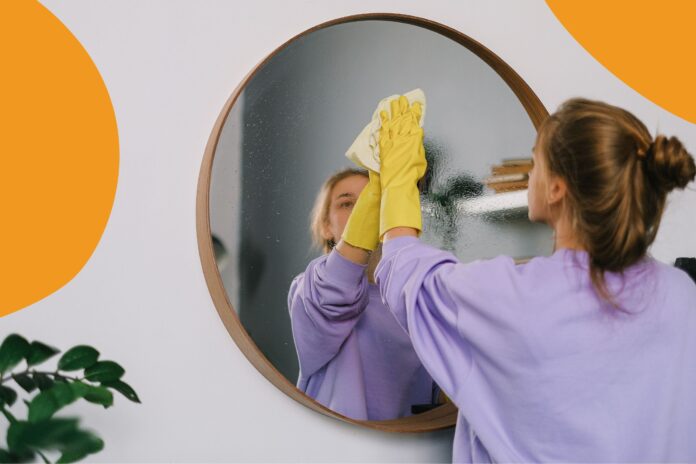It seems like you can’t even wink 40 times in 2025 without another article about the value of sleep. A sterling seven to eight hours between the sheets has been credited as a low mood alleviator, brain cell repairer, pain reliever, blood pressure reducer, clarity giver and just about any other benefit you can dream up. Why, then, when the positives are this obvious, are we still not taking our sleep seriously?
Fortunately, technology is helping to change that, offering education, information and guidance on getting those much-needed, often-elusive zeds. We’ve tested out the best gadgets and gizmos out there for aiding a serene slumber, and with that in a very well rested mind, here are 7 tech solutions to help you sleep more soundly.
Banish Blue Light From The Bedroom
Conversely, in an article about harnessing the power of tech to hack your sleep, we’re going to start here. Perhaps the single most effective path to a better night’s rest is by reducing your phone or laptop use, especially in the immediate one or two hours before you get into bed. Countless studies have shown the link between your screen’s blue light and a difficulty in nodding off, as well as its hand in a disrupted, disruptive sleep pattern. Couple this with the fact that checking emails and social networking late at night will have your brain distracted and not properly prepared for some down time, and it’s clear that something’s got to give.
A few simple steps can make a big difference. Start by imposing a ban on screen time before bed. Most modern smartphones now come with built-in digital wellbeing features that automatically shift to focus mode or wind-down settings in the evening. Both iOS and Android devices offer sophisticated screen time management tools that can be customised to your sleep schedule. It’s also crucial to utilise the night mode feature on all your devices, which automatically tones down that pesky, moreish blue light in favour of something all the more murky and less appealing. Finally, it’s crucial (although yes, a bit difficult) to make your bed a ‘no screen zone’, so your brain begins to dissociate your place of rest with screen-based stimulation.

Temperature Tech
The temperature of your bedroom plays a huge role in the quality of your sleep; the optimum is surprisingly cool, at between 16 and 18°C. Anything significantly warmer will lead to a restless night, with consistency being key if you want an undisturbed slumber. Modern smart climate control systems now offer AI-powered temperature adjustment that learns from your sleep patterns and automatically maintains your optimal sleeping temperature throughout the night. Many of these systems can now integrate with your sleep tracking devices to adjust the temperature based on your sleep stages, ensuring you’re never too hot or too cold.
App Assistance
The world of sleep apps has evolved significantly. While screen time reduction remains important, there are now sophisticated AI-powered sleep coaching apps (more on that a little later) that provide personalised recommendations based on your lifestyle, chronotype, and sleep data. Premium meditation apps like Calm and Headspace have expanded their sleep offerings to include everything from binaural beats to cognitive behavioural therapy for insomnia (CBT-I) programmes.
For those looking to improve their sleep through lifestyle changes, there are now apps that integrate with your smart home devices to create the perfect sleep environment, gradually dimming lights, adjusting temperature, and even releasing calming scents through smart diffusers. Many of these apps can also track your caffeine intake throughout the day and suggest optimal cut-off times based on your personal metabolism and sleep schedule.

Sleep Trackers
Sleep tracking technology has become incredibly sophisticated, moving beyond basic movement monitoring to include advanced biosensors that can track everything from your heart rate variability to your breathing patterns and even your blood oxygen levels during sleep. Modern smart rings and watches now offer detailed sleep architecture analysis, breaking down your sleep cycles and offering actionable insights to improve your sleep quality.
These devices can now detect potential sleep disorders like sleep apnoea and alert you to consult a healthcare provider. They also integrate with your smart home ecosystem to automatically adjust your environment based on your sleep stages and can even wake you up with simulated natural light when you’re in your lightest sleep phase.
There are also a whole host of sleep tracking apps ready to weight in, too, the best of which, to our mind, is Shuteye. How does Shuteye sleep tracker work? Well, it’s through sophisticated algorithms that detect subtle patterns in movement and breathing to identify different sleep phases, including the critical REM stage, and waking you up at the right time accordingly.
S.A.D. Lamps
Blue light before bed is the devil, we’ve already established. But during the day, a controlled version can become a useful tool in the fight against disrupted sleep patterns. Modern light therapy devices have evolved significantly, with some now offering portable options that can be worn as glasses or clips that attach to your regular spectacles. These devices can help regulate your circadian rhythm and boost energy levels during the day, leading to better sleep at night.

Smart Bedding
A revolutionary addition to sleep technology is the emergence of smart bedding and mattress systems. These innovative textiles come with built-in sensors to monitor your sleep environment and adjust accordingly. Some feature phase-change materials that actively regulate your temperature throughout the night, while others incorporate pressure-sensitive zones that can adjust their firmness based on your sleeping position. More humble but no less effective options include humidity-wicking properties and anti-bacterial treatments that help maintain an optimal sleep environment.
AI Sleep Coaching
The latest advancement in sleep technology is the introduction of AI-powered sleep coaching that combines data from multiple sources – your sleep tracker, smart home devices, daily activity patterns, and even your digital calendar – to provide holistic sleep recommendations. These systems can predict potential sleep disruptions based on your upcoming schedule and suggest preventive measures, such as adjusting your bedtime or recommending specific relaxation techniques.
The AI coach can also adapt its recommendations based on your response to different interventions, creating a truly personalised sleep optimisation programme. Some systems even integrate with your work and social calendars to suggest the best times for important meetings or activities based on your predicted energy levels and alertness patterns.
By embracing these technological advances while maintaining a healthy respect for the basics of good sleep hygiene, we can work towards achieving that elusive perfect night’s sleep. After all, in our increasingly connected world, sometimes the smartest choice is knowing when to let technology help us disconnect and drift off into a peaceful slumber, and when to throw our phone into an open fire and bid farewell to ‘tech’ altogether.





